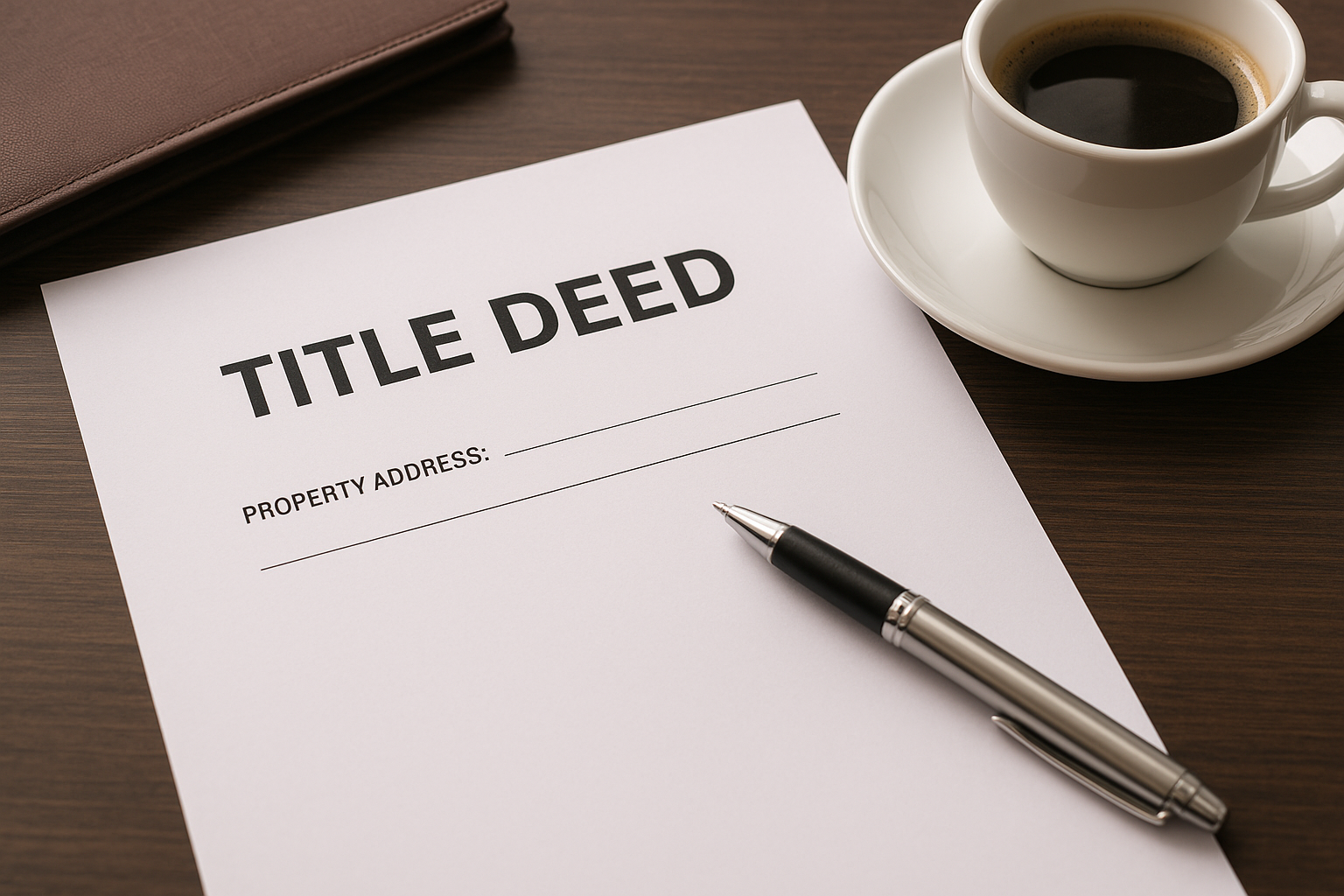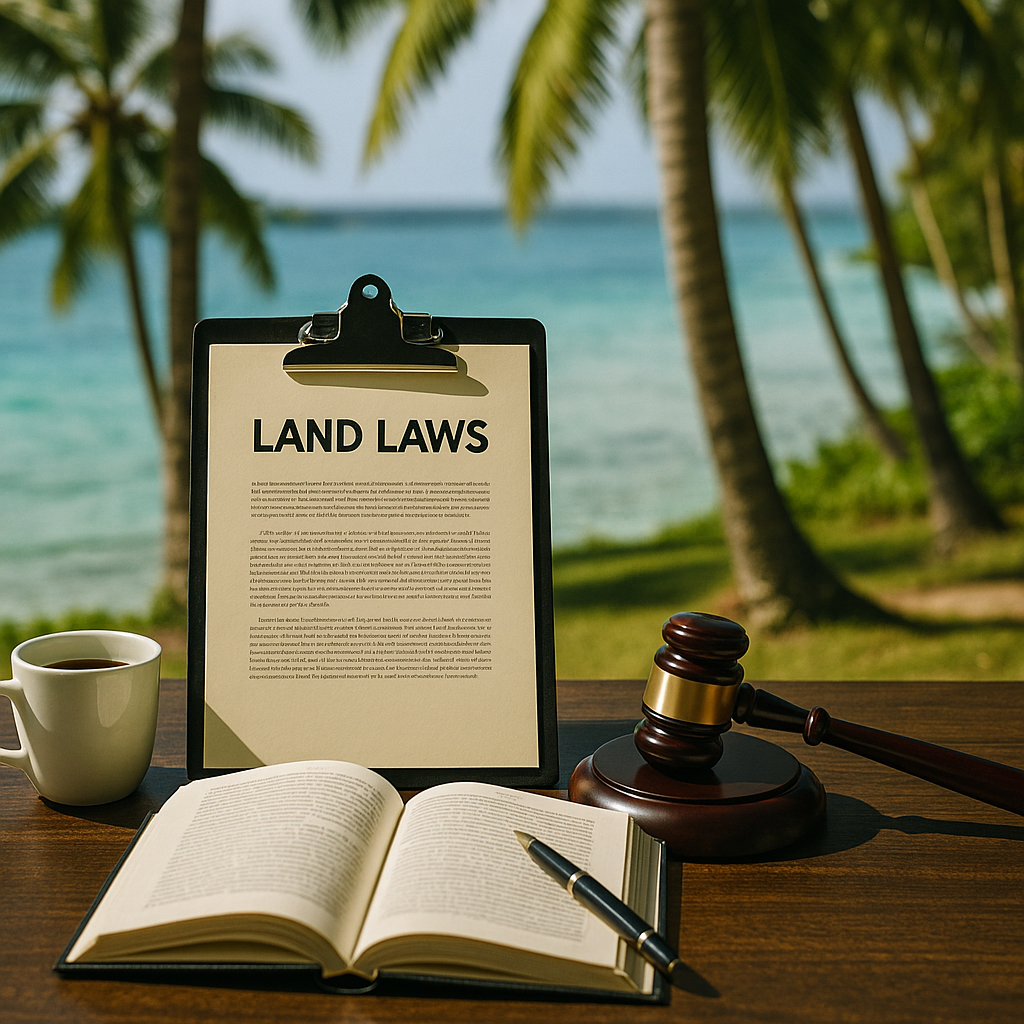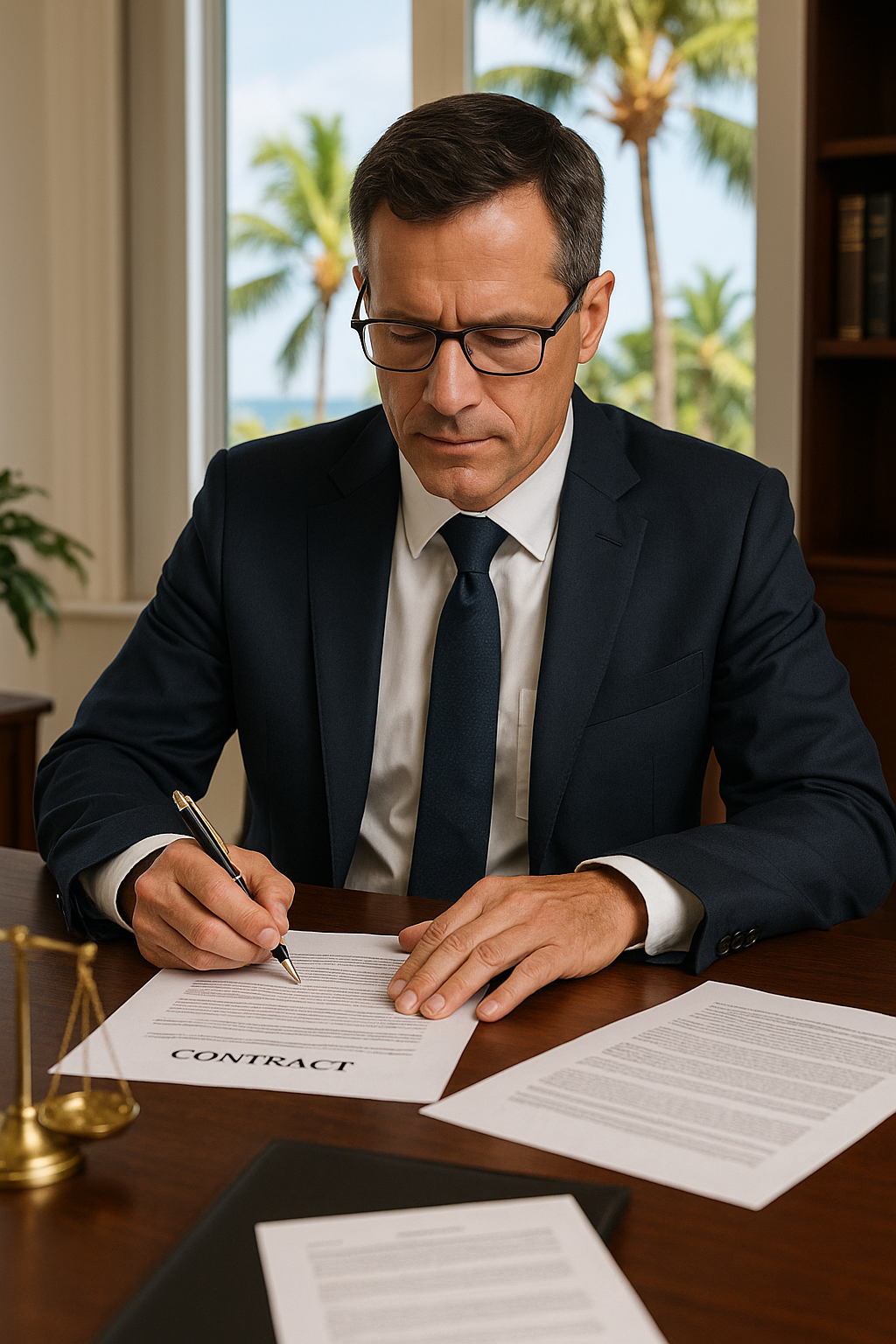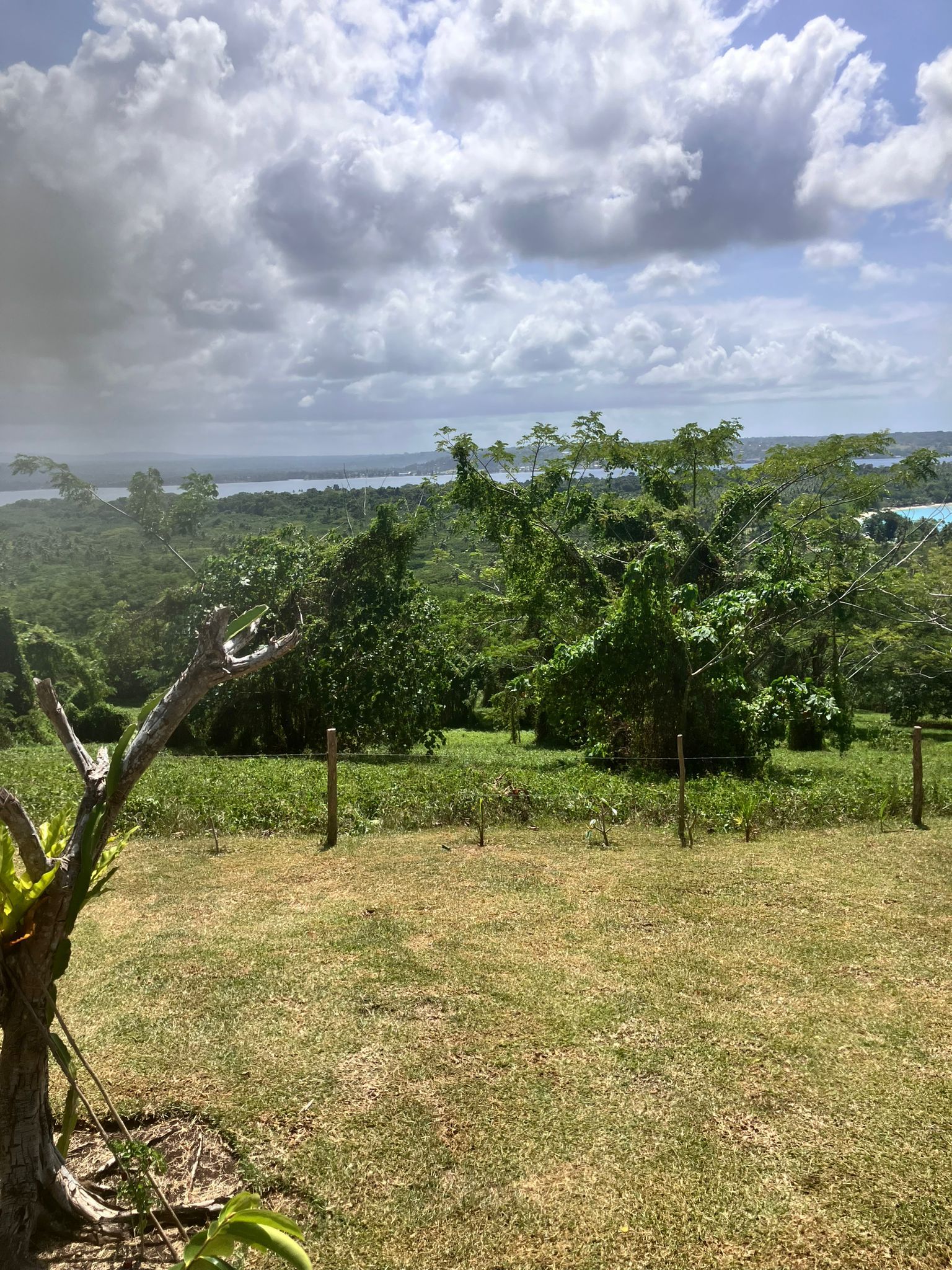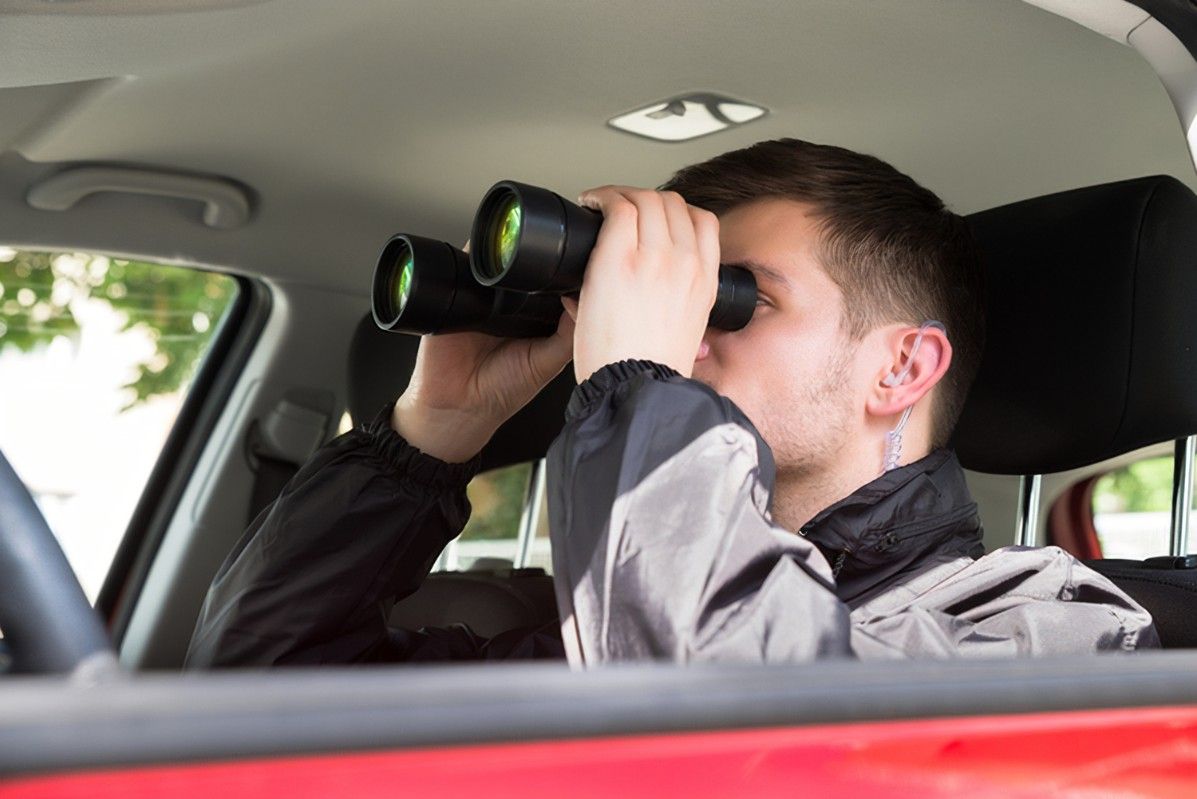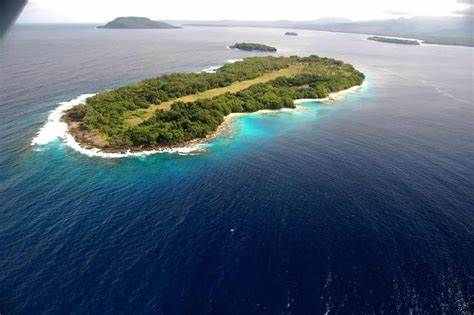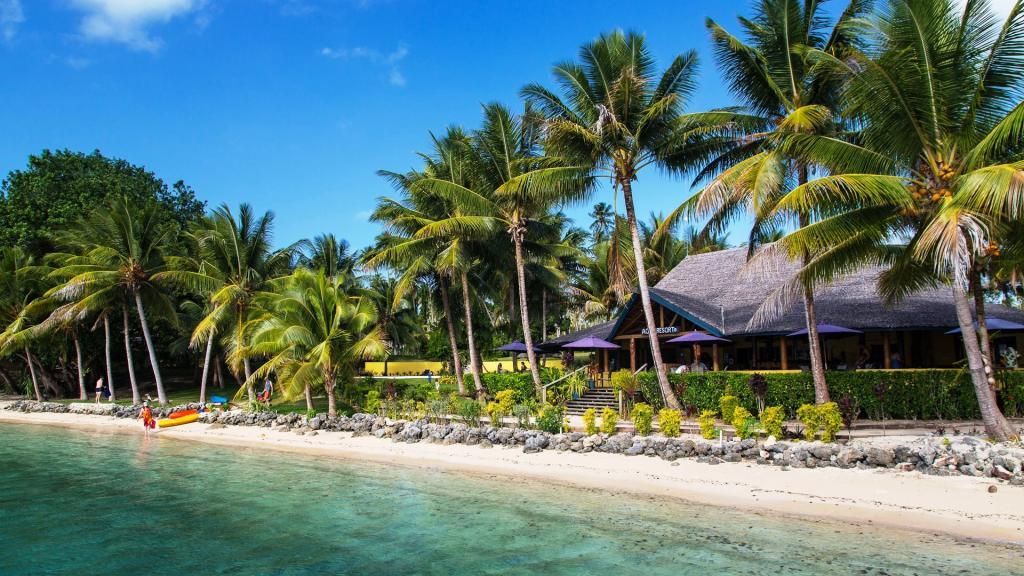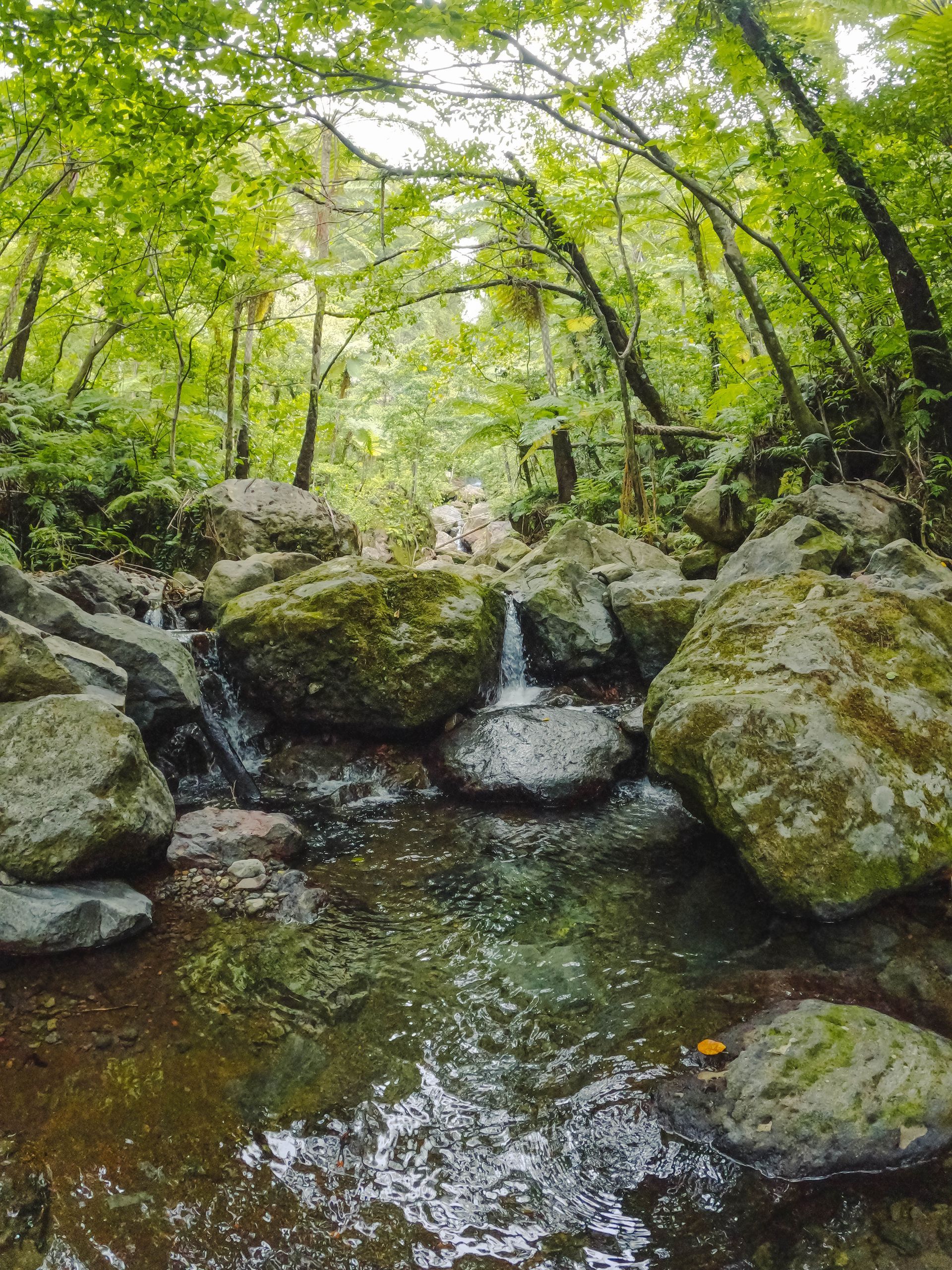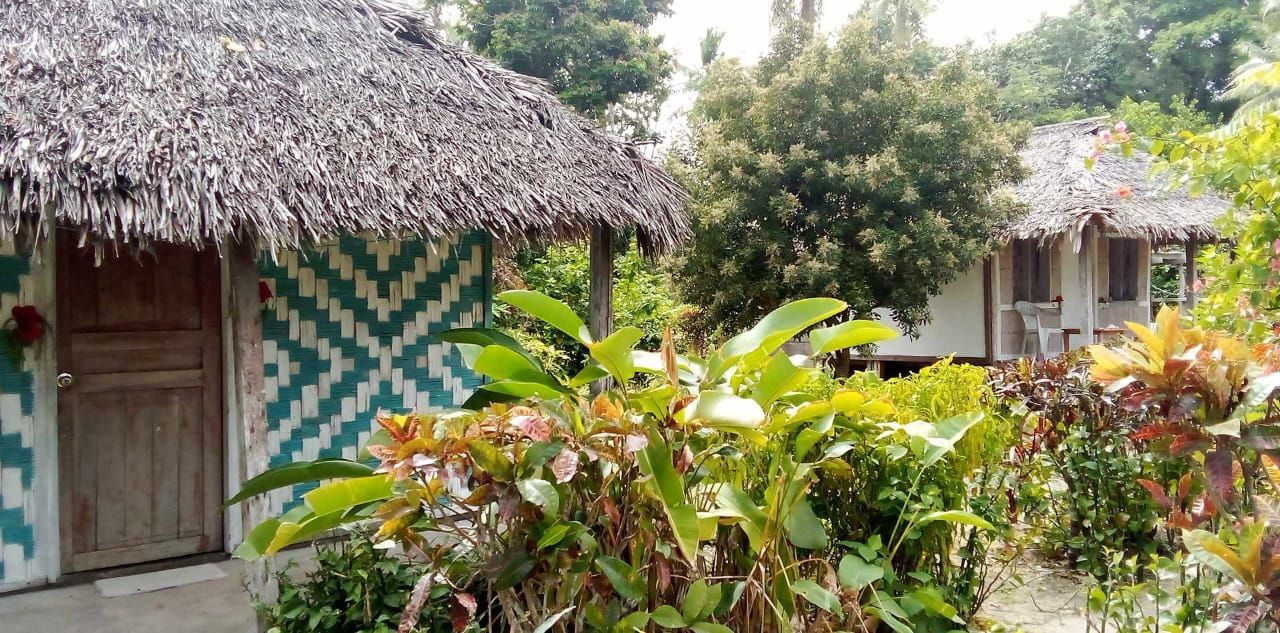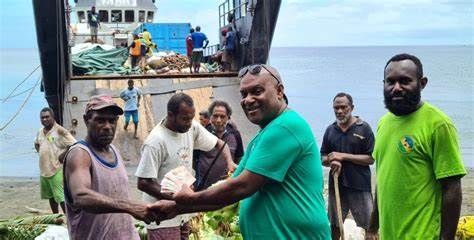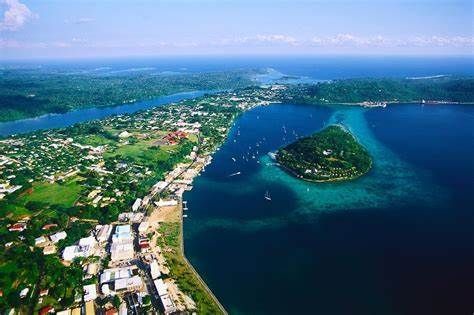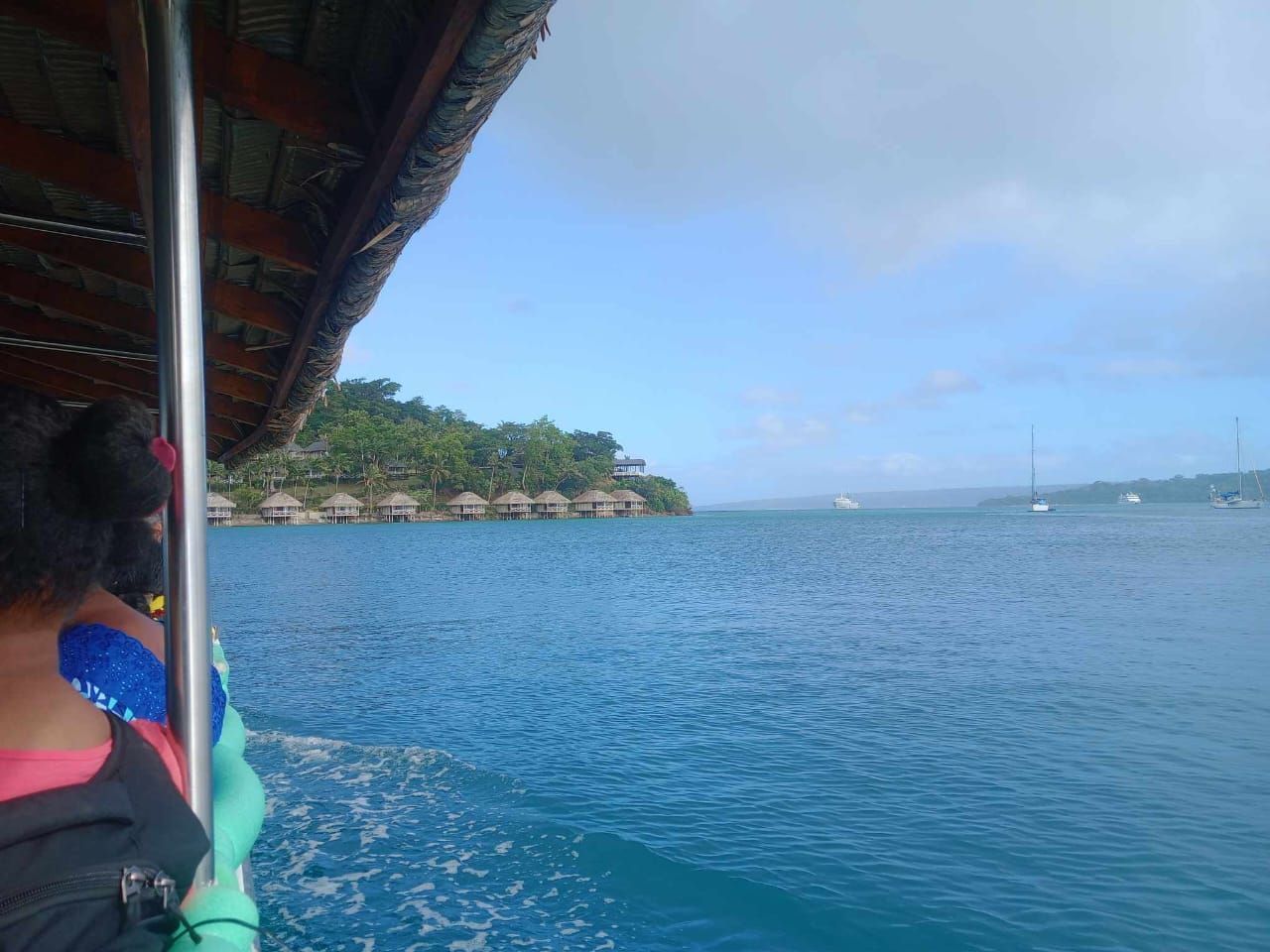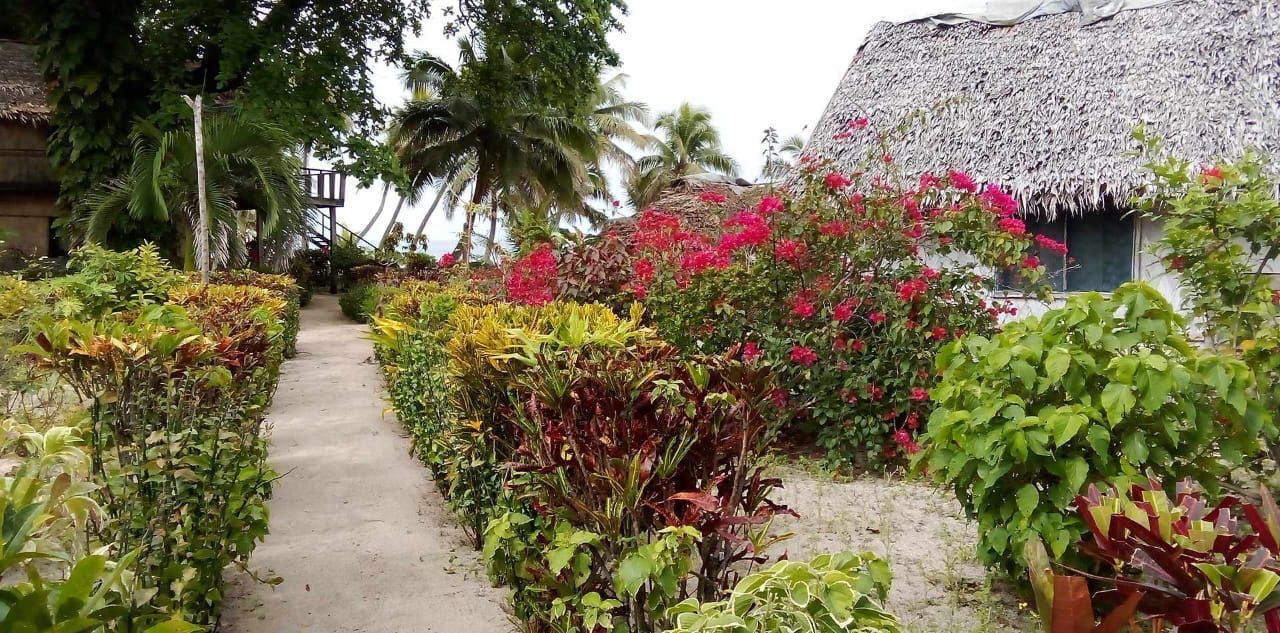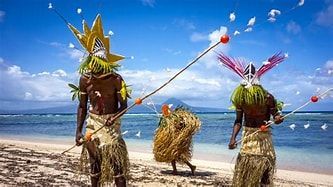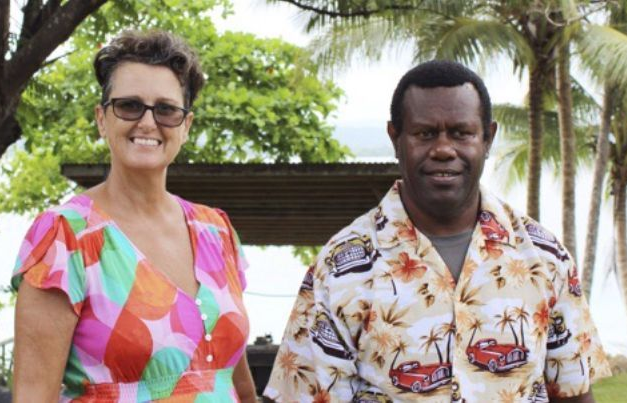How to Buy Land in Vanuatu
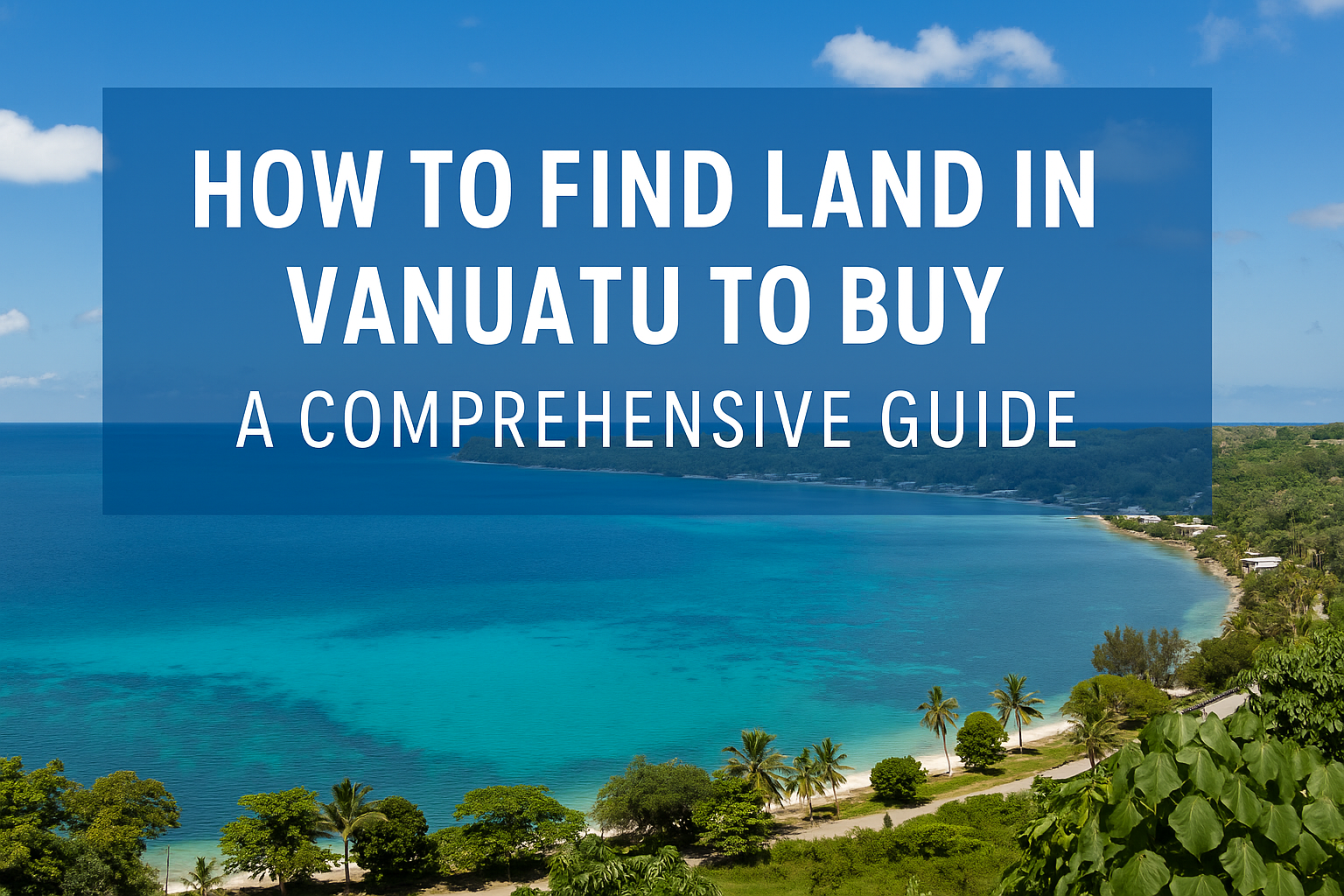
7 min Read
The Complete Guide for Investors,
Expats, and Lifestyle Seekers
Vanuatu, a South Pacific archipelago just a few hours’ flight from Australia and New Zealand, is fast becoming a hotspot for property buyers. With pristine beaches, fertile farmland, and a welcoming culture, it offers both lifestyle appeal and long-term investment opportunities.
But buying land in Vanuatu is not the same as buying in Australia or Europe. Land laws are unique, and understanding them is critical. This guide explains everything you need to know — from ownership rules to regions, due diligence, and the purchase process.
1. Understand Vanuatu’s Land Ownership Laws
Customary Land:
Nearly all land in Vanuatu is owned under customary law by local communities. Freehold ownership is rare.
Leasehold Titles:
Foreign buyers typically secure land through leasehold agreements (50–99 years). Leasehold titles are registered and legally protected, making them the standard method for non-citizens.
Foreign Ownership Restrictions:
Foreigners cannot own freehold land directly but can fully control and develop a leasehold property.
Tip: Always engage a local lawyer to review land documents and explain obligations under Vanuatu law.
2. Define Your Property Goals
Ask yourself:
- Location: Do you want to be near Port Vila with access to schools, hospitals, and shops — or prefer the tranquility of Santo or Aore Island?
- Size: Small residential plot, commercial site, or farmland?
- Purpose: Holiday home, eco-tourism project, resort, retirement property, or investment for capital growth?
- Budget: Factor in purchase price, legal fees, government duties, and infrastructure costs (roads, water, power).
3. Choose the Right Region in Vanuatu
Each island offers something different:
- Efate Island (Port Vila):
Developed infrastructure, schools, expat community, best for convenience. Prices higher. - Santo Island:
Stunning natural beauty, long beaches, scuba diving hub. Ideal for eco-tourism or lifestyle blocks. Medium pricing. - Aore Island:
A 30-minute ferry ride from Santo, Aore offers privacy with proximity to international flights. Perfect for lifestyle farms, retreats, and long-term investment. - Outer Islands:
Remote options for adventurous buyers seeking seclusion. Less infrastructure but unique opportunities.
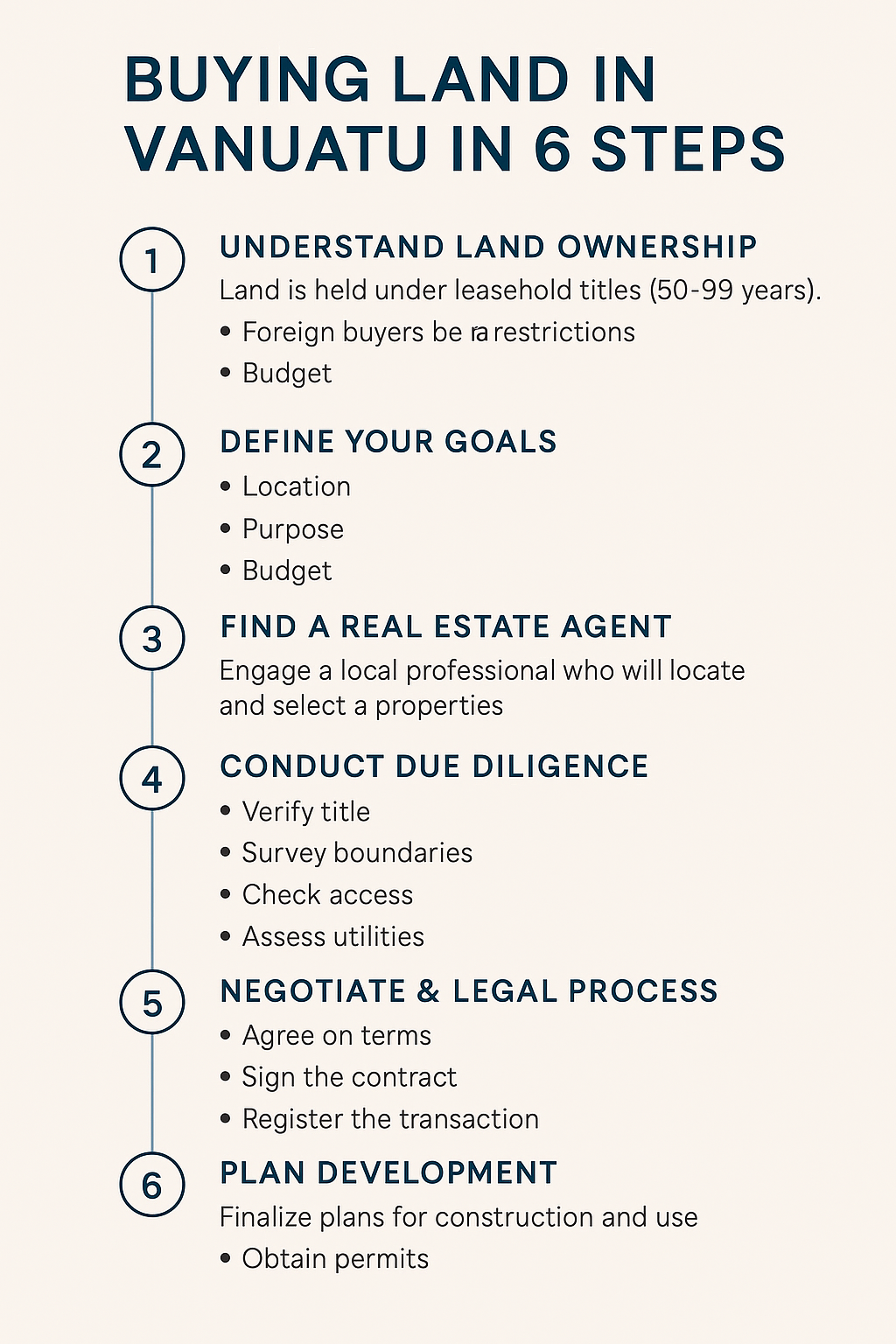
4. Current Market Snapshot
- Entry-Level Pricing: Residential blocks can start around AUD $40,000–$90,000.
- Mid-Market: Beachfront lifestyle or farming land ranges AUD $120,000–$250,000.
- Premium: Resort-ready or luxury beachfront parcels exceed AUD $300,000+.
- Comparisons: Land prices are still significantly lower than Fiji, Bali, or Hawaii, making Vanuatu attractive for investors.
- Trends: Tourism arrivals are steadily increasing (over 300,000 pre-pandemic), and demand for short-term rentals is rising.
5. Work with Licensed Real Estate Agents
A reputable real estate agent in Vanuatu can:
- Provide access to vetted land listings.
- Arrange inspections and negotiations.
- Guide you through cultural expectations and local processes.
- Ensure transparency between buyer and seller.
Search official listings, use property portals, or connect with trusted local agencies.
6. Conduct Due Diligence
Before signing anything, verify:
- Title Search: Confirm lease validity, ownership, and that there are no disputes.
- Survey Plans: Ensure land boundaries are clear and registered.
- Access: Roads, wharf access, or boat-only entry.
- Utilities: Availability of electricity, water, and internet.
- Environmental Rules: Protected zones, coastal restrictions, or cyclone-prone areas.
7. Legal & Regulatory Process
- Hire a Lawyer: They will review contracts, advise on risks, and handle registration.
- Negotiate Terms: Agree on purchase price, lease period, and conditions.
- Contracts: Must be signed by both parties and registered at the Department of Lands.
- Registration: Land transfer is completed through the Vanuatu Land Registry.
8. Development & Ownership Options
Once you secure land, you can:
- Build a Home: Many expats create family homes or retirement villas.
- Tourism Projects: Resorts, eco-lodges, or Airbnb properties are in demand.
- Agriculture: Vanuatu’s fertile soil supports crops like coconuts, cacao, kava, and tropical fruit.
- Investment Hold: Secure land now and resell later as values rise.
9. Costs & Taxes to Expect
- Lease premium (purchase price).
- Annual land rent (negotiated in lease).
- Stamp duty (2% of premium) and 7% registration fees.
- Legal fees (varies, usually AUD $2,000–$4,000).
- Development costs (building permits, infrastructure).
Tax Advantages:
- No capital gains tax.
- No personal income tax.
- No inheritance tax.
10. Lifestyle Benefits of Buying Land in Vanuatu
- Proximity to Australia & NZ: Only a few hours’ flight.
- Laid-back Lifestyle: Friendly communities, relaxed pace of life.
- Health & Safety: Access to schools, hospitals, and fresh local produce.
- Expat Community: Active networks in Port Vila and Santo.
- Daily Life: Fishing, snorkeling, gardening, and living close to nature.
11. Case Studies
- “John and Maria from Melbourne purchased a one-acre block on Aore for AUD $65,000. Within two years, they built a small villa and now rent it out to holiday guests at $200/night.”
- “A retired couple from Queensland secured a beachfront parcel on Santo. They planted fruit trees, built a solar-powered home, and now live tax-free while leasing part of their land to an eco-tourism operator.”
Frequently Asked Questions
Can foreigners buy land in Vanuatu?
Can foreigners buy land in Vanuatu?
Yes, through leasehold agreements (50–99 years).
Is leasehold secure?
Is leasehold secure?
Yes, leaseholds are legally registered and enforceable under Vanuatu law.
What’s the average cost of land?
What’s the average cost of land?
Residential blocks can start around AUD $60,000; premium beachfront land can exceed AUD $300,000.
Do I need to be in Vanuatu to buy land?
Do I need to be in Vanuatu to buy land?
Not always. With legal representation, transactions can be handled remotely.
What happens when the lease ends?
Leases can often be renewed, renegotiated, or extended depending on conditions.
Can I pass my lease to my children?
Yes, leases can be transferred or inherited.
Are there restrictions on building?
Building permits must be obtained, especially in coastal areas. Environmental approvals may also apply.
Does buying land qualify me for residency?
Buying land alone does not guarantee residency, but combining it with investment programs or visas may help.
What are the risks?
What are the risks?
Disputes over land title, unclear boundaries, or limited access. Always do due diligence with a local lawyer.
Can I finance the purchase?
Can I finance the purchase?
Some local banks offer mortgages, but vendor finance is common and flexible.
Final Thoughts
Buying land in Vanuatu is achievable and rewarding when approached strategically. Understand the leasehold system, choose the right location, and work with licensed professionals. Whether your dream is a beachfront villa, an eco-retreat, or an investment block, Vanuatu offers opportunities for lifestyle and capital growth.
Next Step: Connect with a trusted Vanuatu real estate agent to start viewing properties today.

